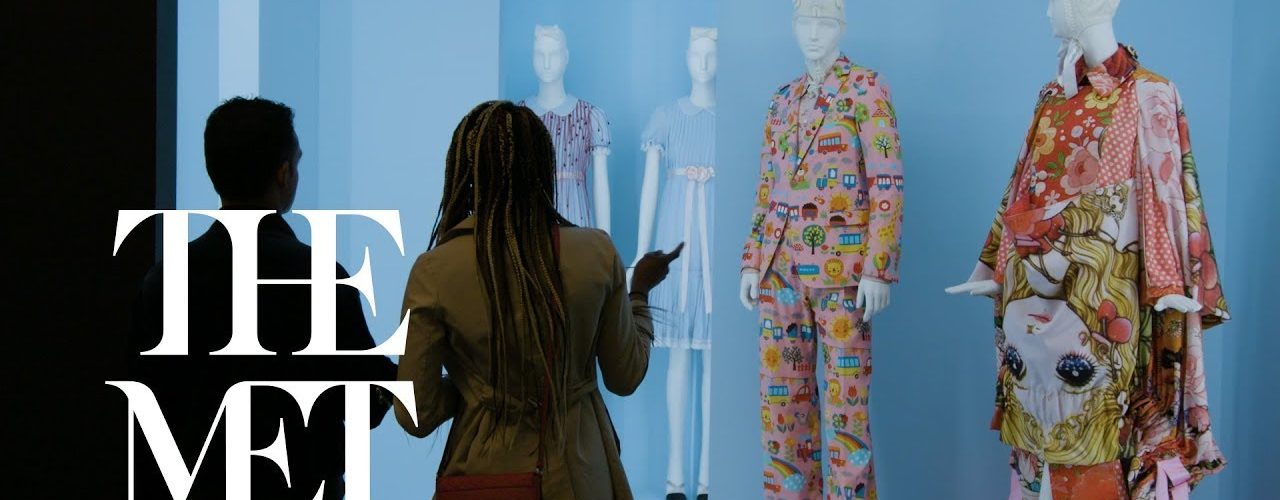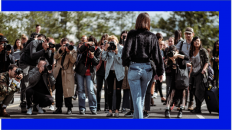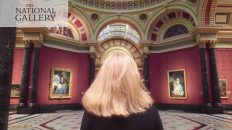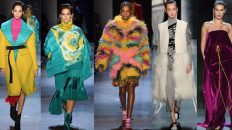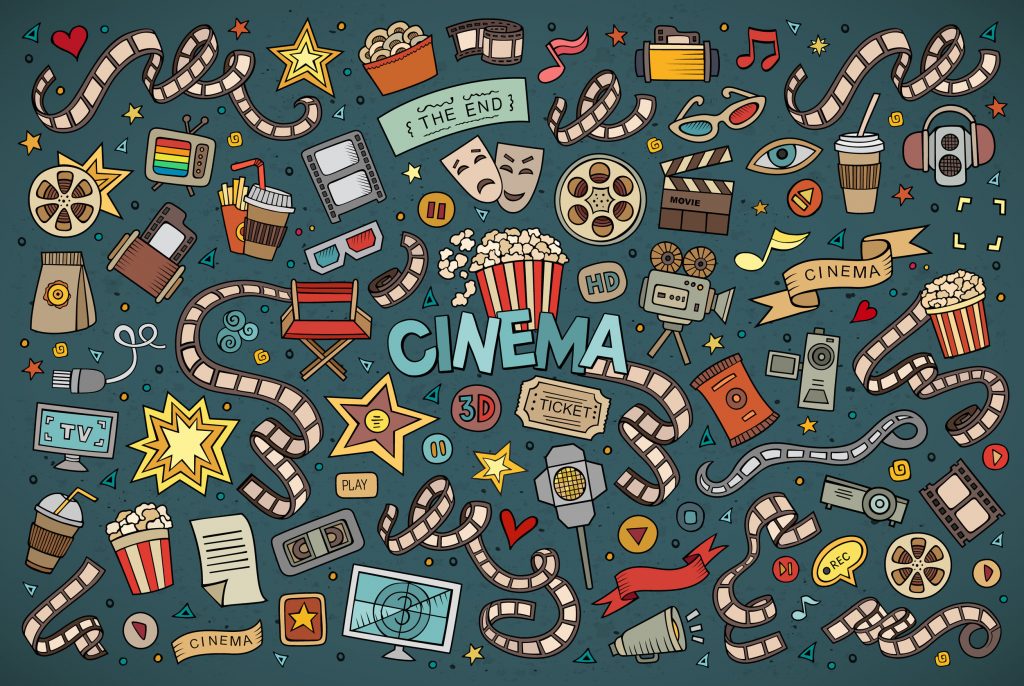Watch exhibition curator Andrew Bolton as he narrates gallery views of The Costume Institute’s spring 2019 exhibition, Camp: Notes on Fashion at The Met. Through more than 250 objects dating from the seventeenth century to the present, The Costume Institute’s spring 2019 exhibition explores the origins of camp’s exuberant aesthetic. Susan Sontag’s 1964 essay “Notes on ‘Camp'” provides the framework for the exhibition, which examines how the elements of irony, humor, parody, pastiche, artifice, theatricality, and exaggeration are expressed in fashion.
Check out the above video for information on The Met’s ‘Camp: Notes on Fashion’, narrated by exhibition curator Andrew Bolton
The Costume Institute’s spring 2019 exhibition, Camp: Notes on Fashion (on view from May 9 through September 8, 2019, and preceded on May 6 by The Costume Institute Benefit), explores the origins of camp’s exuberant aesthetic and how the sensibility evolved from a place of marginality to become an important influence on mainstream culture. Susan Sontag’s 1964 essay “Notes on ‘Camp’” provides the framework for the exhibition, which examines how fashion designers have used their métier as a vehicle to engage with camp in a myriad of compelling, humorous, and sometimes incongruous ways. On this page you can find.
The exhibition is made possible by Gucci.
Additional support is provided by Condé Nast.
“Camp’s disruptive nature and subversion of modern aesthetic values has often been trivialized, but this exhibition reveals that it has had a profound influence on both high art and popular culture,” said Max Hollein, Director of The Met. “By tracing its evolution and highlighting its defining elements, the show embodies the ironic sensibilities of this audacious style, challenges conventional understandings of beauty and taste, and establishes the critical role that this important genre has played in the history of art and fashion.”
In celebration of the opening, The Costume Institute Benefit—also known as The Met Gala—takes place on Monday, May 6. The evening’s co-chairs are Lady Gaga, Alessandro Michele, Harry Styles, Serena Williams, and Anna Wintour. The event is The Costume Institute’s main source of annual funding for exhibitions, publications, acquisitions, and capital improvements.
“Fashion is the most overt and enduring conduit of the camp aesthetic,” said Andrew Bolton, Wendy Yu Curator in Charge of The Costume Institute. “Effectively illustrating Sontag’s ‘Notes on “Camp,”’ the exhibition advances creative and critical dialogue about the ongoing and ever-evolving impact of camp on fashion.”
Exhibition Overview
The exhibition features approximately 250 objects, including womenswear and menswear, as well as sculptures, paintings, and drawings dating from the 17th century to the present. The show’s opening section positions Versailles as a “camp Eden” and address the concept of se camper—“to posture boldly”—in the royal courts of Louis XIV and Louis XV. It then focuses on the figure of the dandy as a “camp ideal” and traces camp’s origins to the queer subcultures of Europe and America in the late 19th and early 20th centuries. In her essay, Sontag defined camp as an aesthetic and outlined its primary characteristics. The second section of the exhibition is devoted to how these elements—which include irony, humor, parody, pastiche, artifice, theatricality, and exaggeration—are expressed in fashion.
Designers whose work is on view in the exhibition include Virgil Abloh (for Off-White c/o Virgil Abloh); Giorgio Armani (for Armani Privé); Manish Arora; Ashish; Christopher Bailey (for Burberry); Cristóbal Balenciaga; Thom Browne; Sarah Burton (for Alexander McQueen); Jean-Charles de Castelbajac; Antonio del Castillo (for Lanvin-Castillo); Dapper Dan (for Gucci); Christian Dior; Salvatore Ferragamo; John Galliano (for Maison Margiela, House of Dior, and John Galliano); Jean Paul Gaultier; Nicolas Ghesquière (for Louis Vuitton); Odile Gilbert (for Jean Paul Gaultier); Edda Gimnes and Manuel Vadillo (for EDDA); Molly Goddard; Bertrand Guyon (for House of Schiaparelli); Demna Gvasalia (for Balenciaga and VETEMENTS); Johnson Hartig (for Libertine); Deirdre Hawken; Pam Hogg; Marc Jacobs; Rossella Jardini (for House of Moschino); Stephen Jones (for Giles Deacon, John Galliano, and House of Schiaparelli); Christopher Kane; Patrick Kelly; Ada Kokosar; Christian Lacroix; Karl Lagerfeld (for House of Chanel and Chloé); Mary Katrantzou; Rei Kawakubo (for Comme des Garçons); Tomo Koizumi; Bob Mackie; Martin Margiela; Stella McCartney (for Chloé); Alexander McQueen (for Givenchy); Alessandro Michele (for Gucci); Edward Molyneux; Erdem Moralioglu (for Erdem); Franco Moschino; Thierry Mugler; Alejandro Goméz Palomo (for Palomo Spain); JiSun Park and KyuYong Shin (for Blindness); Marjan Pejoski; Phoebe Philo (for Céline); Paul Poiret; Gareth Pugh; Richard Quinn; Traver Rains and Richie Rich (for Heatherette); Zandra Rhodes; William Dill-Russell; Yves Saint Laurent; Elsa Schiaparelli; Jeremy Scott (for Moschino and Jeremy Scott); Hedi Slimane (for Saint Laurent); Viktor Horsting and Rolf Snoeren (for Viktor & Rolf); Anna Sui; Jun Takahashi (for Undercover); Michael Travis; Philip Treacy; Giambattista Valli; Walter Van Beirendonck; Patric DiCaprio, Claire Sullivan, and Bryn Taubensee (for Vaquera); Gianni Versace; and Vivienne Westwood.
Exhibition Credits
The exhibition is organized by Andrew Bolton, Wendy Yu Curator in Charge of The Costume Institute; with Karen Van Godtsenhoven, Associate Curator; and Amanda Garfinkel, Assistant Curator. Theater scenographer Jan Versweyveld, whose work includes Lazarus with David Bowie as well as Broadway productions of A View from the Bridge and Network, created the exhibition design with The Met’s Design Department, and consulted on the gala décor with Raul Avila, who has produced the décor since 2007. All headdresses are specially created for the exhibition by Stephen Jones.
Related Content
A publication by Andrew Bolton with Fabio Cleto, Karen Van Godtsenhoven, and Amanda Garfinkel accompanies the exhibition and includes new photography by Johnny Dufort. It is published by The Metropolitan Museum of Art and distributed by Yale University Press.
A special feature on the Museum’s website, www.metmuseum.org/Camp, provides further information about the exhibition. Follow us on Facebook.com/metmuseum, Instagram.com/metmuseum, and Twitter.com/metmuseum to join the conversation about the exhibition and gala. Use #MetCamp, #CostumeInstitute, @MetCostumeInstitute, and #MetGala on Instagram and Twitter.
About Gucci
Founded in Florence in 1921, Gucci is one of the world’s leading luxury fashion brands, with a reputation for creativity, innovation, and Italian craftsmanship. Gucci is part of Kering, a global Luxury group, which manages the development of a series of renowned maisons in fashion, leather goods, jewelry, and watches.
About The Met
The Met presents over 5,000 years of art from around the world in three New York City locations—The Met Fifth Avenue, The Met Breuer, and The Met Cloisters. Since it was founded in 1870, the Museum has brought art to life in its galleries and through exhibitions and events, revealing both new ideas and unexpected connections across time and cultures.
USAAudiences
See all kinds of movies before they are released! CLICK HERE for information about signing up for invitations to advance private movie screenings.

